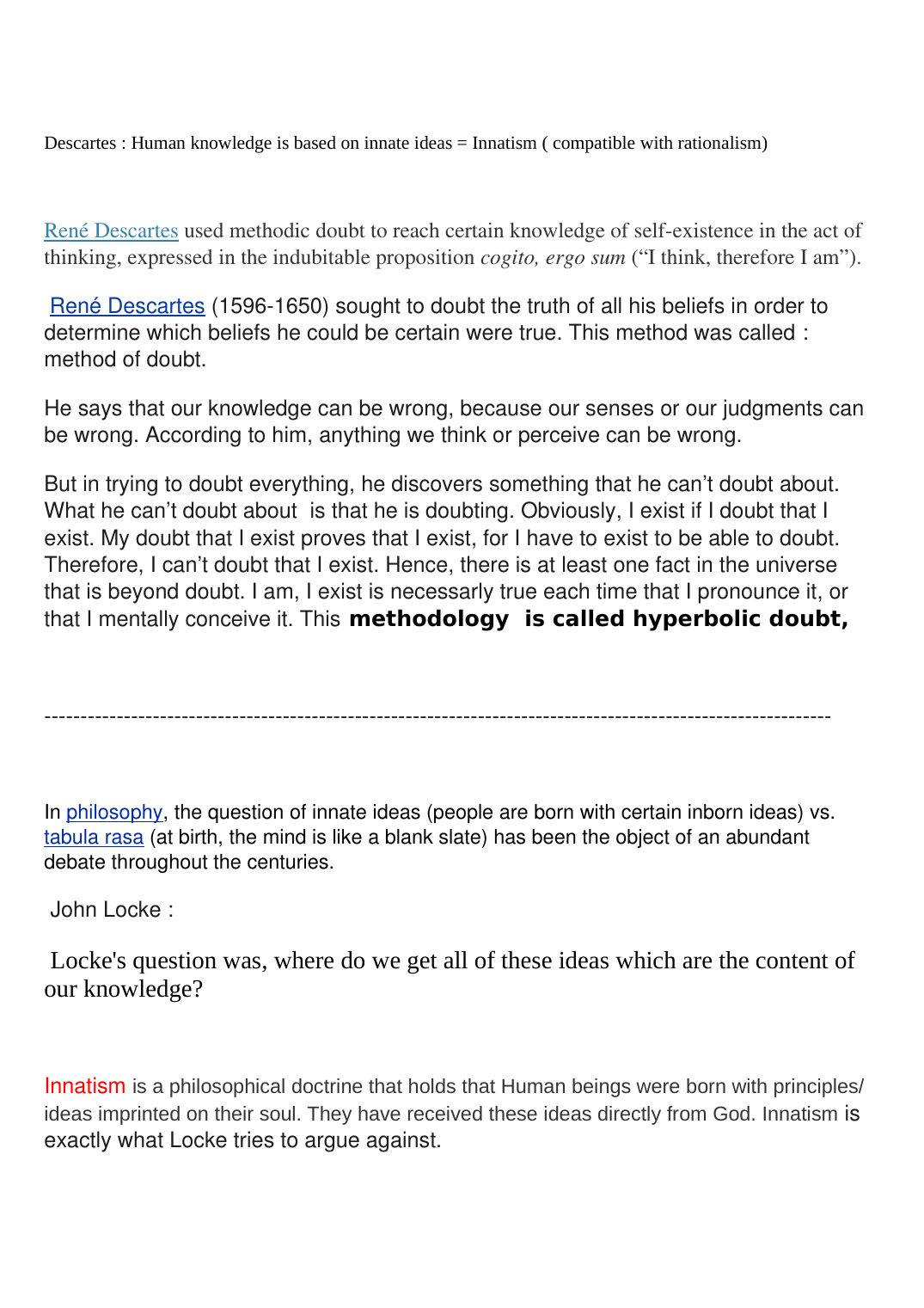Descartes : Human knowledge is based on innate ideas = Innatism ( compatible with rationalism)
Publié le 23/05/2020

Extrait du document
«
René Descartes used methodic doubt to reach certain knowledge of selfexistence in the act of
thinking, expressed in the indubitable proposition cogito, ergo sum (“I think, therefore I am”).
Ren
é Descartes (15961650) sought to doubt the truth of all his beliefs in order to
determine which beliefs he could be certain were true. This method was called :
method of doubt.
He says that our knowledge can be wrong, because our senses or our judgments can
be wrong. According to him, anything we think or perceive can be wrong.
But in trying to doubt everything, he discovers something that he can’t doubt about.
What he can’t doubt about is that he is doubting. Obviously, I exist if I doubt that I
exist. My doubt that I exist proves that I exist, for I have to exist to be able to doubt.
Therefore, I can’t doubt that I exist. Hence, there is at least one fact in the universe
that is beyond doubt. I am, I exist is necessarly true each time that I pronounce it, or
that I mentally conceive it. This methodology is called hyperbolic doubt,
In philosophy , the question of innate ideas (people are born with certain inborn ideas) vs.
tabula rasa (at birth, the mind is like a blank slate) has been the object of an abundant
debate throughout the centuries.
John Locke :
Locke's question was, where do we get all of these ideas which are the content of
our knowledge?
Innatism is a philosophical doctrine that holds that Human beings were born with principles/
ideas imprinted on their soul.
They have received these ideas directly from God.
Innatism is
exactly what Locke tries to argue against..
»
↓↓↓ APERÇU DU DOCUMENT ↓↓↓
Liens utiles
- La consience chez Descartes
- René DESCARTES (1596-1650) Lettre à Morus, 5 février 1649
- Commentaire René Descartes Discours de la méthode: le bonheur
- travail de recherche sur descartes
- Descartes, discours de la méthode (analyse)


